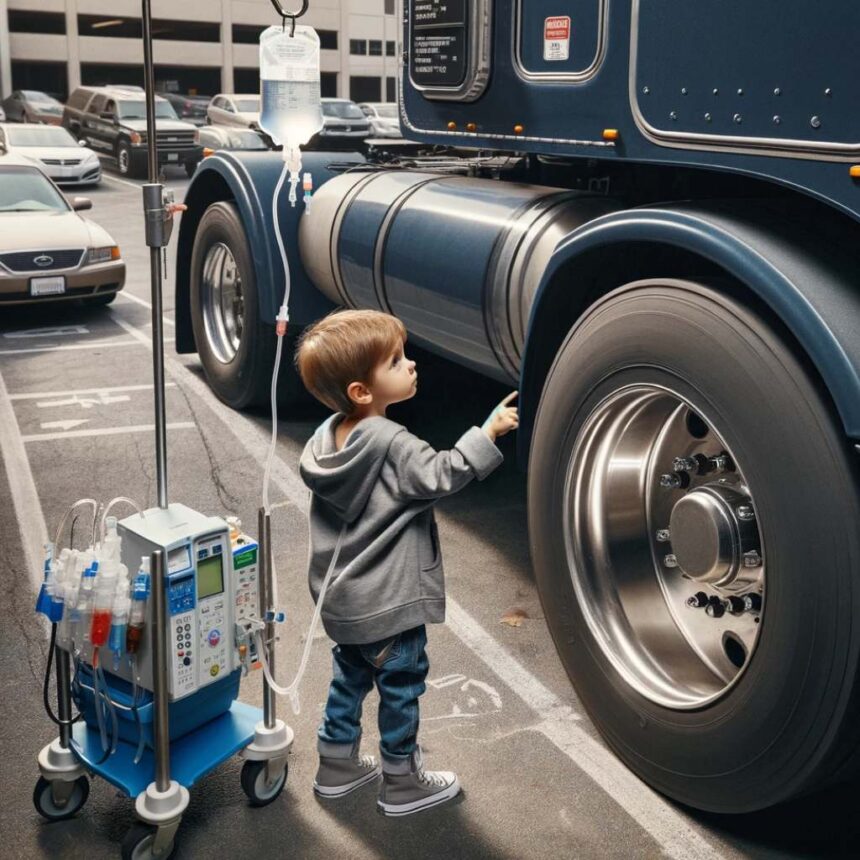Note: This is satire, relax. It’s even in the Satire category. It couldn’t possibly happen, or… maybe… nah, it couldn’t.
Helena, MT — In a groundbreaking move, the state of Montana has decided to send children recently disenrolled from the state Medicaid program to bolster border security in Arizona. The innovative strategy was announced by Montana’s government officials on Wednesday.
The current administration’s handling of Medicaid redeterminations has resulted in the disenrollment of a significant number of children from Medicaid coverage. Since the redetermination process began, approximately 30,000 children have lost their Medicaid coverage in Montana. This process has been criticized for its bureaucratic hurdles and the negative impact on vulnerable populations, including children, Native Americans, and seniors. Administration officials take issue with this narrative, but regardless, it will become a much-discussed topic in the time leading up to the upcoming gubernatorial election.
“These kids are resilient and full of energy,” said a spokesman in a press conference. “They’ve been dealing with the complexities of healthcare bureaucracy, so they’re more than equipped to handle the complexities of border security. We’ve successfully weaned them off egregious and wasteful government assistance, so the next step is helping them find their useful purpose and contribute to society. We will have transformed thousands of little drains on the economy into an army of patriotic border warriors.”
The children, ages 5 to 18, have been enrolled in an impromptu boot camp, where they will be trained in basic surveillance techniques, hand-to-hand combat, mirrored sunglass care, country music from 1995 on, razor wire stringing, and how to properly stand by and observe safely while an intruder drowns. “I’ve always wanted to serve my state instead of being a sickly leech,” said Bradley, a 12-year-old with Type 1 diabetes who was recently disenrolled from Medicaid because his family couldn’t navigate the enrollment process. “Plus the guy from the state said I could probably go across the border and get some affordable insulin while we are down there, but I have to pay for it still. My mom says I’ll probably get to shoot someone, or at least stab a guy in restraints… which is awesome.”
Officials insist the plan isn’t just a cost-cutting measure but a unique opportunity to keep these children active and engaged. “We’re not just throwing them out there,” reassured a state official. “They’ll have real walkie-talkies, sunscreen, and plenty of FEMA-issued fruit snacks. Plus, patrolling the border will give them all kinds of fresh air and exercise, which is far healthier than sitting around waiting for healthcare and complaining about chronic, untreated, medical issues. Our data indicates that the increased exercise will potentially lead to less future potential health problems. However, I will acknowledge that we also have no plans of providing or subsidizing medical care in the future for them anyway, so that part won’t technically save the state any money, it’s a just a feel-good bonus. Preferably they just like the weather down there and decide to stay.”
Critics have been quick to point out the myriad of potential problems with this plan. “This is child labor, plain and simple,” said a concerned parent who wished to remain anonymous. “I thought the state would at least pretend to care about our kids’ health for re-election purposes. Now they want to send them to the desert?” But supporters argue that it’s a brilliant, outside-the-box solution to two problems: rising healthcare costs and border security. “This is a win-win,” said local pundit Jim Bailson. “We save money on Medicaid and enhance border security with some of the most determined little guardians you could ask for. These kids know how to handle tough situations; after all, they are hardened veterans of navigating crippling generational poverty AND our ridiculous healthcare system!” When asked whether this plan is just political pandering at the expense of our most vulnerable citizens, Bailson argued, “Look, you snowflakes better get used to the process of making Montana great again, which is certainly going to require a few dead kids once in a while.”
There are military and law enforcement pundits on both sides of the argument. A border patrol agent who wanted to remain anonymous said, “Just when I thought this country couldn’t get crazier, here is a state 1,200 miles away sending us children as a political stunt and somehow, inexplicably, there are two sides to the argument.” Rick Smith, a security contractor that insisted on being named in this story explained, “This is why we need tough businessmen in charge of critical national security issues. When I see these proud little warriors, I don’t see scared and weak kids – I see a tactical advantage. I’ll give you an example – I saw one of these little guys walk right under a truck and just look up and point at something shiny, and it turned out to be shrink wrapped cocaine bundle. We seized 50 kilos that day alone and one of these cartel assholes even tried to run, so we got a sweet kill out of it too.”
While it’s uncertain how effective this strategy will be, one thing is clear: Montana is not afraid to take bold, unprecedented, private sector inspired steps to address its challenges. Whether this will encourage other states to follow suit remains to be seen. In the meantime, as little Bradley and his friends don their tiny uniforms, and prepare to head to the border, Montana officials are already planning their next innovative cost-saving measure. Rumors in Helena suggest it might involve disenrolled elderly citizens building a southern border wall between Montana and Wyoming, but only time will tell.





